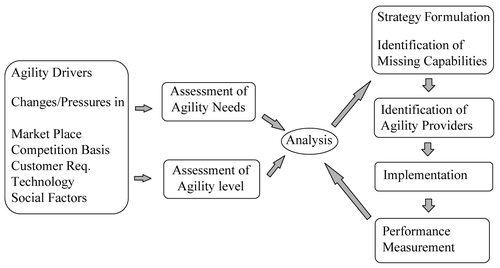
Could have a picture here
Our work seeks to model and incorporate low-carbon as a key decision-making criterion in systems or supply chain design and operation. Through modelling we are working to incorporate the whole system, supply chain and product life-cycle emissions in the design and analysis of products and manufacturing systems, and in production planning and control.
Our current research projects have explored the agriculture and food production supply chain which generates high emissions through the need to maintain controlled temperature during manufacturing, storage and transport, and the aerospace sector, where product design and manufacturing need to take into consideration the whole product life cycle and supply chain emissions. We also work on modelling tools that would support the analysis of different options from a total systems point of view for achieving zero-emission products or operations.
Projects
- Co-production of Physical Products and Value Co-creation - Scalability in the Wild (Funded by EPSRC, Cadbury, Delphi (£365,236))
Abstract: Our wish through this Research in the Wild call is to take a significant step towards collective user creativity in physical products, concurrently generating added value and superior user experience. User communities can collaboratively produce (co-produce) and actively support, vote and enjoy products, and experience co-created product value, though this predominantly resides in a digital media and virtual environment. Many users have yet to interact with manufacturers to co-produce tangible physical products largely because of design and production complexity issues, although this is an area of rapidly growing interest and one which are seek to address in this project. This project aims to break down these barriers, and implement and evaluate user based design, production and web service tools for users and manufacturers to co-produce physical products and co-create user added value and bring these tools to a viable commercial exploitation position. The project will utilise a flexible chocolate Additive Layer Manufacturing (ChocALM) technique and integrate it with mass production technology, thereby engaging a large numbers of users to support co-design and co-production of chocolate gift products. This would help to invigorate a substantial UK share in this global market. This project therefore will boost our experience of a sustainable digital economy, grow the service capability of manufacturers, and bring creativity and innovation to a user society. - Towards zero-emission carpet manufacturing (Funded by the RDA and Axminster Carpet Limited (£195,870))
Abstract: Carpet manufacturing is a traditional industry and it consumes a lot of energy whilst generating pollutions and waste. This work is concerned with how to help a carpet manufacturer to achieve zero-emission products, taking a whole systems approach. Options being investigated include the applications of renewable energy in the manufacturing process, the recycling of waste water and heat recovery, the reuse of by-products from the processes, the recycling and remanufacturing of end-of-life carpets, and the move towards total service and supply chain integration. - Towards sustainable and tasty food in Europe (funded by EU (€60,000))
Abstract: The aim of this project is to disseminate XMEC’s major research findings obtained from ‘MeCagrO2’ project to industry. Consumer behaviours and dynamics will be modelled and simulated in order to investigate how food companies’ marketing strategies such as adding food sustainability information on product labels, will impact the consumers’ purchase decisions. - Process optimisation for energy efficient production (Funded by Great West Research and British Ceramic Tiles Ltd (£60k))
Abstract: Manufacturing of ceramic tiles is an energy intensive process where energy cost constitutes more than 30% of the total production cost. This work investigates the effects of process parameters, production planning decisions, and weather conditions on the energy consumption in ceramic tile manufacturing. Based on this, the work investigates means for optimising production plans and process parameters to achieve low-carbon manufacturing. - Modelling and optimisation of inventory and sourcing decisions in a multiple-tier supply chain for low-carbon operation (Funded by Thailand Government)
Abstract: Manufacturing cost has become critical in the success of global supply chain networks, and a key topic in supply chain management has been the management of inventory cost and cost from wasted energy and resources. The waste issue has become even more important as the issues of climate change, energy security, food security and sustainability assume prominence in recent years. This situation is typified by an agriculture and food supply chain, where a lot of energy is consumed by the needs to maintain materials and products within controlled temperature during manufacturing, storage and transport and a lot of wastes are generated by materials and food wastage before reaching consumer due to their perishable nature. This work investigates how to optimising inventory and multiple sourcing decisions in a multi-tier supply chain, in particular a food chain, to minimise total cost and total carbon footprint whist maintaining delivery reliability and goods availability.

